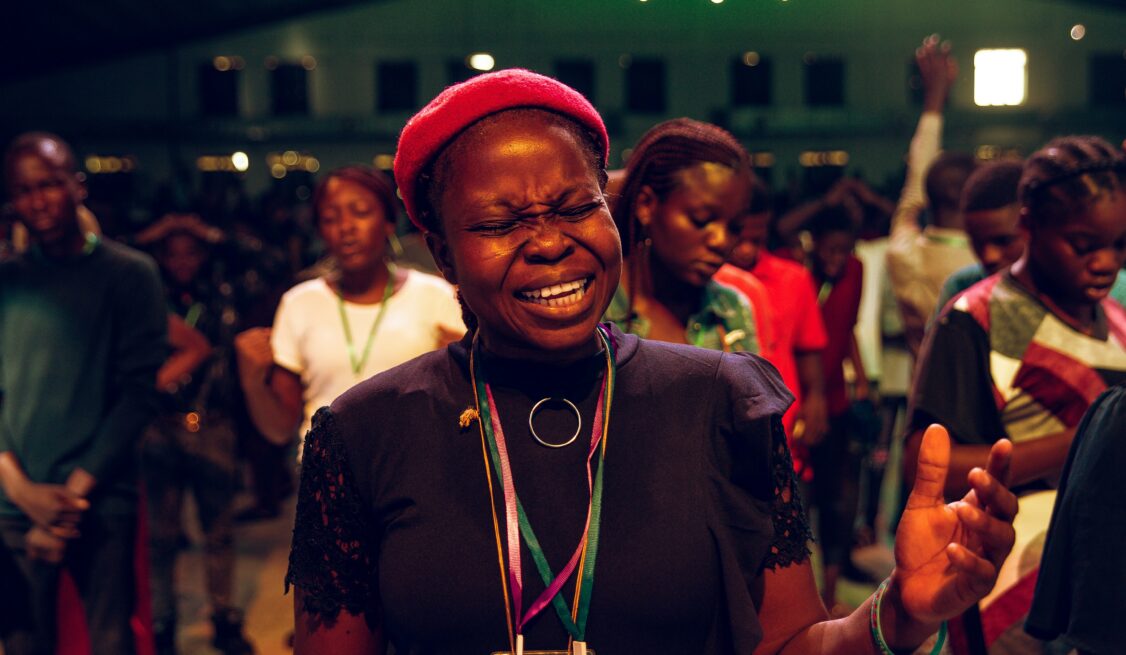“For while we were still weak, at the right time Christ died for the ungodly.” – Romans 5:6
Deep Dive
At the very start, humanity has been marked by imperfection. Sin entered the world through Adam, yet through Christ, redemption was made available to all (Romans 5:12-19). This gift of salvation is not contingent on human perfection but on the grace of God extended through Jesus. Regardless of identity or orientation, all people are invited into the redemptive love of Christ.
Key Scriptures:
- Romans 3:23-24: “For all have sinned and fall short of the glory of God, and are justified by his grace as a gift, through the redemption that is in Christ Jesus.”
- Romans 5:8: “But God shows his love for us in that while we were still sinners, Christ died for us.”
- Ephesians 2:8-9: “For by grace you have been saved through faith, and this is not your own doing; it is the gift of God, not a result of works, so that no one may boast.”
The Love of Christ for All
Jesus’ ministry was characterized by an unwavering love for the marginalized and outcast. He dined with sinners, touched lepers, and uplifted those whom society deemed unworthy. In the same way, His love extends to all people, including LGBTQ individuals. His sacrifice on the cross was for everyone who believes in Him.
Key Scriptures:
- John 3:16: “For God so loved the world, that he gave his only Son, that whoever believes in him should not perish but have eternal life.”
- John 6:37: “All that the Father gives me will come to me, and whoever comes to me I will never cast out.”
- Matthew 9:12-13: “But when he heard it, he said, ‘Those who are well have no need of a physician, but those who are sick. Go and learn what this means: ‘I desire mercy, and not sacrifice.’ For I came not to call the righteous, but sinners.’”
Grace, Not Perfection
Many feel unworthy of God’s love due to their struggles, yet the gospel assures us that salvation is not based on our perfection but on Christ’s sacrifice. Our identity is rooted in Christ, not in the condemnation of others.
Key Scriptures:
- 2 Corinthians 5:21: “For our sake he made him to be sin who knew no sin, so that in him we might become the righteousness of God.”
- Galatians 2:16: “Yet we know that a person is not justified by works of the law but through faith in Jesus Christ.”
- 1 John 1:9: “If we confess our sins, he is faithful and just to forgive us our sins and to cleanse us from all unrighteousness.”
The Church’s Call to Love and Embrace
As the body of Christ, the Church is called to extend love and grace, mirroring Jesus’ heart for all people. Instead of exclusion, believers are called to unity in Christ, recognizing that salvation is for everyone who calls upon the Lord.
Key Scriptures:
- Romans 10:13: “For ‘everyone who calls on the name of the Lord will be saved.’”
- Galatians 3:28: “There is neither Jew nor Greek, there is neither slave nor free, there is no male and female, for you are all one in Christ Jesus.”
- 1 Corinthians 12:13: “For in one Spirit we were all baptized into one body—Jews or Greeks, slaves or free—and all were made to drink of one Spirit.”
Addressing Misinterpretations
Some scriptures have been misused to exclude LGBTQ individuals, but a deeper understanding reveals that many of these passages address idolatry, exploitation, and cultural concerns rather than loving, committed relationships. Scripture must be read in the context of Christ’s ultimate commandment: love.
Key Scriptures:
- Matthew 22:37-39: “You shall love the Lord your God with all your heart and with all your soul and with all your mind. This is the great and first commandment. And a second is like it: You shall love your neighbor as yourself.”
- Romans 13:10: “Love does no wrong to a neighbor; therefore love is the fulfilling of the law.”
- Micah 6:8: “He has told you, O man, what is good; and what does the Lord require of you but to do justice, and to love kindness, and to walk humbly with your God?”
Living in Christ’s Redemption
For LGBTQ Christians, the journey of faith is the same as for anyone else: trusting in Christ, walking in grace, and seeking to love God and others. Our imperfections do not disqualify us from salvation; rather, they are the very reason Christ came.
Key Scriptures:
- 2 Corinthians 5:17: “Therefore, if anyone is in Christ, he is a new creation. The old has passed away; behold, the new has come.”
- Ephesians 1:4-5: “Even as he chose us in him before the foundation of the world, that we should be holy and blameless before him. In love he predestined us for adoption to himself as sons through Jesus Christ.”
- Romans 8:1: “There is therefore now no condemnation for those who are in Christ Jesus.”
Practical Application
The call of Christ is to love, embrace, and invite all into His grace. The Church must be a sanctuary where every believer, including LGBTQ individuals, can grow in faith without fear of rejection.
- Extend Christ’s Love: Embrace all people as Christ did, without judgment.
- Re-evaluate Cultural Interpretations: Study Scripture in its historical and cultural context.
- Foster Community: Create spaces where LGBTQ individuals can worship freely and authentically.
Addressing Common Concerns
Does accepting LGBTQ people mean endorsing sin?
No, it means extending the same grace and compassion that Christ extended to all sinners, recognizing that we are all in need of God’s love and redemption. Acceptance is not endorsement; it is the invitation to journey with others in faith.
What about Biblical teachings that seem to condemn same-sex relationships?
It’s essential to interpret these passages within their historical and cultural context. The Bible’s condemnation is often about abusive practices or idolatry, not consensual, committed relationships between LGBTQ individuals.
Closing Prayer
“Lord, thank You for Your grace that knows no bounds. Remind us that salvation is a gift, not earned by works but freely given through Jesus Christ. Help us to love as You love, to walk in grace, and to welcome all into Your family. In Jesus’ name, Amen.”
Last modified: February 14, 2025



